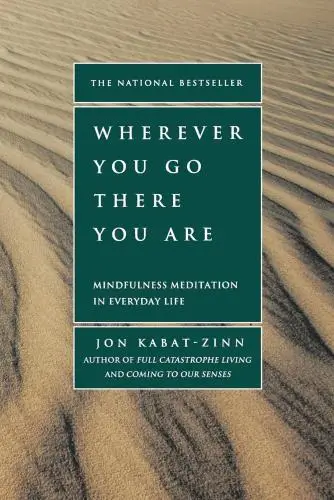Wherever You Go, There You Are
Mindfulness Meditation in Everyday Life
What's it about?
Wherever You Go, There You Are is a mindfulness guide by Jon Kabat-Zinn that teaches readers how to live in the present moment. Kabat-Zinn emphasizes the importance of mindfulness in everyday life, offering practical tips and exercises to help readers cultivate self-awareness and find peace within themselves. This book is perfect for anyone looking to reduce stress, improve mental clarity, and enhance overall well-being. Kabat-Zinn's gentle and insightful writing style makes this a must-read for anyone seeking to live a more mindful and fulfilling life.
About the Author
Jon Kabat-Zinn is a mindfulness expert known for his groundbreaking work in bringing mindfulness meditation into mainstream medicine. His book "Wherever You Go, There You Are" is a classic guide to mindfulness practice. Kabat-Zinn emphasizes the importance of being present in the moment and cultivating a non-judgmental awareness of our thoughts and feelings. His work has been instrumental in helping people manage stress, pain, and illness through mindfulness practices.
10 Key Ideas of Wherever You Go, There You Are
Embrace the Power of Mindfulness in Everyday Activities
Integrate mindfulness into daily routines such as eating, walking, or even washing dishes.
By focusing on the present moment and observing the sensations, thoughts, and emotions that arise, you cultivate a deeper awareness and appreciation for life.
This practice helps reduce stress, enhances concentration, and promotes a sense of peace.
Learn DeeperStart with a Mindful Morning: Begin each day by taking five minutes to simply sit in silence. Focus on your breath, the sensations in your body, and the sounds around you. This sets a mindful tone for the day.
Mindful Eating: At meal times, eat slowly and without distractions like TV or smartphones. Pay attention to the taste, texture, and aroma of your food. Notice how it makes you feel and the process of feeling fuller.
Walking Meditation: Turn a routine walk into a practice of mindfulness. Focus on the sensation of your feet touching the ground, the rhythm of your breath, and the sights and sounds around you. Even a short five-minute walk can be transformed.
Mindful Listening: When conversing with others, listen with full attention. Notice the tone of their voice, their expressions, and fully absorb the content of what they're saying without planning your response while they speak.
Pause Before Reacting: In moments of stress or irritation, take a brief pause to breathe deeply and observe your feelings without judgment before responding. This can prevent knee-jerk reactions and promote more thoughtful interactions.
- Example
While washing dishes, instead of rushing through to get it done, slow down and pay attention to the sensation of the water on your hands, the sound of dishes clinking, and the rhythm of your movements. This turns a mundane task into a moment of mindfulness.
- Example
During your morning shower, focus on the feeling of the water cascading over you, the scent of your soap, and the steam surrounding you. Use this time to clear your mind and fully engage with the present moment.
Cultivate Non-Judgmental Awareness
Approach each moment with an open mind, free from preconceptions and judgments.
Observe your thoughts and feelings without labeling them as good or bad.
This attitude fosters acceptance and compassion towards yourself and others, reducing negative self-talk and enhancing emotional well-being.
Learn DeeperStart Your Day with a Mindfulness Moment: Before you dive into your daily tasks, take a few minutes each morning to sit quietly. Focus on your breath, and observe any thoughts or feelings that arise without judgment. This practice sets a non-judgmental tone for the day.
Create a 'Pause and Observe' Habit: Throughout your day, whenever you notice yourself reacting automatically to a situation or feeling, pause. Take a deep breath and simply observe your reaction without labeling it as good or bad. This helps in cultivating a habit of non-judgmental awareness.
Journal with an Open Mind: At the end of the day, spend some time writing about your experiences. Instead of evaluating your actions or feelings as right or wrong, describe them objectively. Reflect on what you observed about your thoughts and emotions, fostering a deeper understanding and acceptance.
Practice Compassionate Listening: When conversing with others, listen with the intent to understand rather than to respond. Avoid making snap judgments about what they're saying. This not only improves your relationships but also trains you to approach interactions with an open, non-judgmental mind.
- Example
While stuck in traffic, instead of immediately feeling frustrated or angry, take a moment to notice these feelings without judgment. Breathe deeply and observe your surroundings, acknowledging your emotions but not being controlled by them.
- Example
When receiving feedback at work, whether positive or negative, listen openly without immediately categorizing the feedback as good or bad. Reflect on it with curiosity, considering how it can serve your growth without attaching to the judgment.
Establish a Daily Meditation Practice
Dedicate a specific time each day to meditate, starting with just a few minutes and gradually increasing the duration.
Consistency is key to developing mindfulness and reaping its benefits, such as reduced anxiety, improved focus, and greater emotional resilience.
Learn DeeperChoose a Consistent Time and Place: Select a time of day when you are least likely to be disturbed. This could be early in the morning before the rest of your household wakes up, or in the evening when things have settled down. Find a quiet spot in your home where you can sit comfortably without interruptions.
Start Small and Build Gradually: Begin with just 5 minutes of meditation each day. As you become more comfortable with the practice, gradually increase the duration. This helps build the habit without feeling overwhelmed.
Use a Timer: To keep track of time without constantly checking the clock, use a timer. There are many meditation apps available that offer this feature, along with guided meditations if you prefer some guidance.
Focus on Your Breath: A simple way to meditate is to focus on your breath. Pay attention to the sensation of air entering and leaving your nostrils, or the rise and fall of your chest. When your mind wanders, gently bring your focus back to your breath.
Be Patient and Kind to Yourself: Understand that it's normal for your mind to wander during meditation. Don't get frustrated. Acknowledge the distraction and gently return your focus to your breath. Meditation is a practice, and like any skill, it takes time to develop.
- Example
Imagine you decide to meditate every morning at 6:30 AM, right after you wake up. You find a quiet corner in your living room where you can sit undisturbed. You start with 5 minutes of focusing on your breath, using a meditation app to time your session.
- Example
You choose to meditate in the evening at 9 PM, after your daily chores are done. You sit on a cushion in your bedroom, away from noise. Initially, you meditate for 5 minutes, gradually increasing to 15 minutes over several weeks. You focus on your breath, and each time you notice your mind wandering, you gently guide it back, practicing patience and self-compassion.
Use Breathing as an Anchor to the Present Moment
Whenever you find your mind wandering, gently redirect your attention to your breath.
Focusing on the rhythm of your inhalations and exhalations can help anchor you in the present moment, calming the mind and reducing stress.
Learn DeeperSet aside a few minutes each day for focused breathing exercises. Choose a quiet spot where you won't be disturbed. Sit comfortably, close your eyes, and focus solely on your breath. Notice the sensation of air entering and leaving your nostrils, or the rise and fall of your chest.
Use reminders to practice mindfulness throughout the day. Set alarms on your phone or place sticky notes in visible areas as cues to take short breaks to focus on your breathing. This can help reset your attention and bring you back to the present moment, especially during stressful situations.
Incorporate mindful breathing into routine activities. Whether you're waiting in line, walking to work, or even during workouts, turn these moments into opportunities to focus on your breath. This practice can help integrate mindfulness into your daily life, making it easier to stay present.
Practice patience and non-judgment with yourself. Recognizing when your mind has wandered without criticism is part of the process. Gently guide your focus back to your breath each time, acknowledging that this redirection is a success in your mindfulness practice.
- Example
While waiting for your morning coffee to brew, instead of checking your phone, stand still and pay attention to your breathing. Notice how your body feels, the sound of your breath, and the sensation of air moving in and out of your body.
- Example
If you're feeling overwhelmed at work, take a minute to close your eyes and focus on your breath. Concentrate on taking deep, slow breaths, counting to four as you inhale and again as you exhale. This can help clear your mind and reduce stress.
Adopt a Beginner's Mind in All Endeavors
Approach experiences with curiosity and openness, as if encountering them for the first time.
This mindset encourages creativity, flexibility, and a willingness to learn, helping to overcome biases and preconceived notions that can limit personal growth.
Learn DeeperStart Each Day Fresh: Begin your day with a few minutes of mindfulness meditation, focusing on the sensation of breathing. This practice helps clear your mind and approach the day with a beginner's mindset, seeing opportunities and challenges with fresh eyes.
Embrace Curiosity in Conversations: When talking to others, especially in familiar contexts, challenge yourself to listen as if hearing their perspectives for the first time. Ask open-ended questions to deepen your understanding and discover new insights.
Try New Experiences Regularly: Once a week, commit to trying something outside of your comfort zone, whether it's a new hobby, recipe, or route to work. This encourages adaptability and keeps the beginner's mind engaged.
Reflect on Your Day with Fresh Eyes: At the end of each day, take a few moments to reflect on your experiences. Try to see the events of the day from a new perspective, identifying what you learned and how you can apply this knowledge moving forward.
- Example
Imagine you're a seasoned chef who decides to take a beginner's cooking class in a cuisine you're unfamiliar with. Approaching the class with a beginner's mind, you're open to learning new techniques and perspectives, enriching your culinary skills and creativity.
- Example
Consider a software developer who's been in the field for years. They decide to attend a workshop on a programming language they're already proficient in, but with the intention of embracing a beginner's mindset. They end up discovering new ways of solving problems and optimizing code that they hadn't considered before.
Deeper knowledge. Personal growth. Unlocked.
Unlock this book's key ideas and 15M+ more. Learn with quick, impactful summaries.
Read Full SummarySign up and read for free!
Wherever You Go, There You Are Summary: Common Questions
Experience Personalized Book Summaries, Today!
Discover a new way to gain knowledge, and save time.
Sign up for our 7-day trial now.
No Credit Card Needed

Similar Books

This Is Your Brain on Joy
Earl Henslin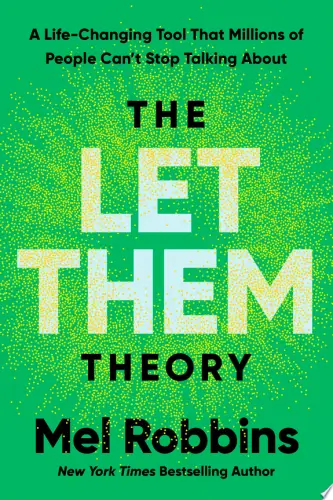
The Let Them Theory
Mel Robbins
Flight SQA016
Amanda Radley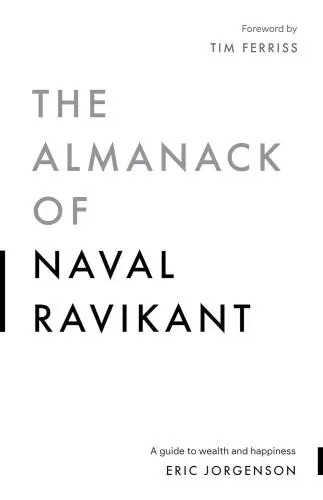
The Almanack of Naval Ravikant
Eric Jorgenson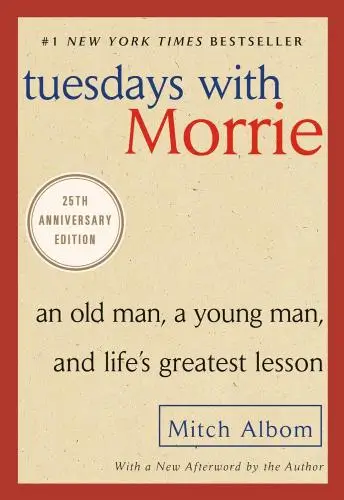
Tuesdays with Morrie
Mitch Albom
Think Like a Monk
Jay Shetty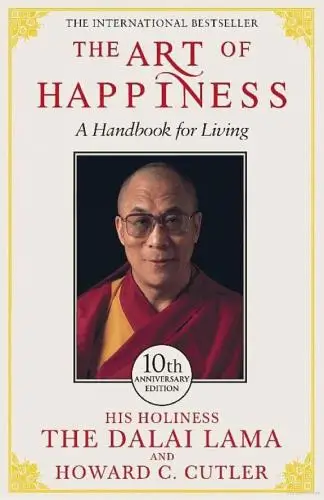
The Art of Happiness
Dalai Lama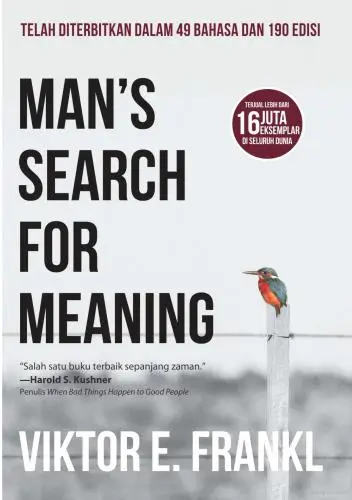
Man's Search for Meaning
Viktor E. Frankl
Comprehensive Casebook of Cognitive Therapy
Frank M. Dattilio
Learning Habits
Sarah NichollTrending Summaries

Peak
Anders Ericsson
Never Split the Difference
Chris Voss
Smart Brevity
Jim VandeHei
The Psychology of Money
Morgan Housel
The First 90 Days
Michael D. Watkins
Atomic Habits
James Clear
Thinking, Fast and Slow
Daniel Kahneman
The Body Keeps the Score
Bessel van der Kolk M.D.
The Power of Regret
Daniel H. Pink
The Compound Effect
Darren HardyNew Books

Forex Trading QuickStart Guide
Troy Noonan
Comprehensive Casebook of Cognitive Therapy
Frank M. Dattilio
The White Night of St. Petersburg
Michel (Prince of Greece)
Demystifying Climate Models
Andrew Gettelman
The Hobbit
J.R.R. Tolkien
The Decision Book
Mikael Krogerus
The Decision Book: 50 Models for Strategic Thinking
Mikael Krogerus
Fichte
Johann Gottlieb Fichte
Do No Harm
Henry Marsh
